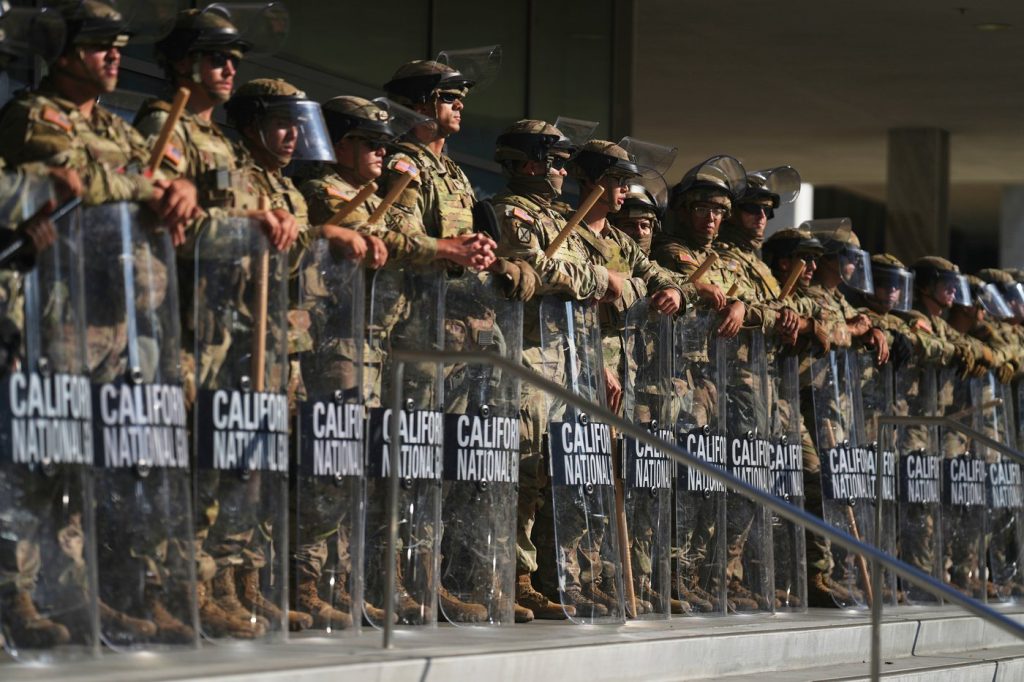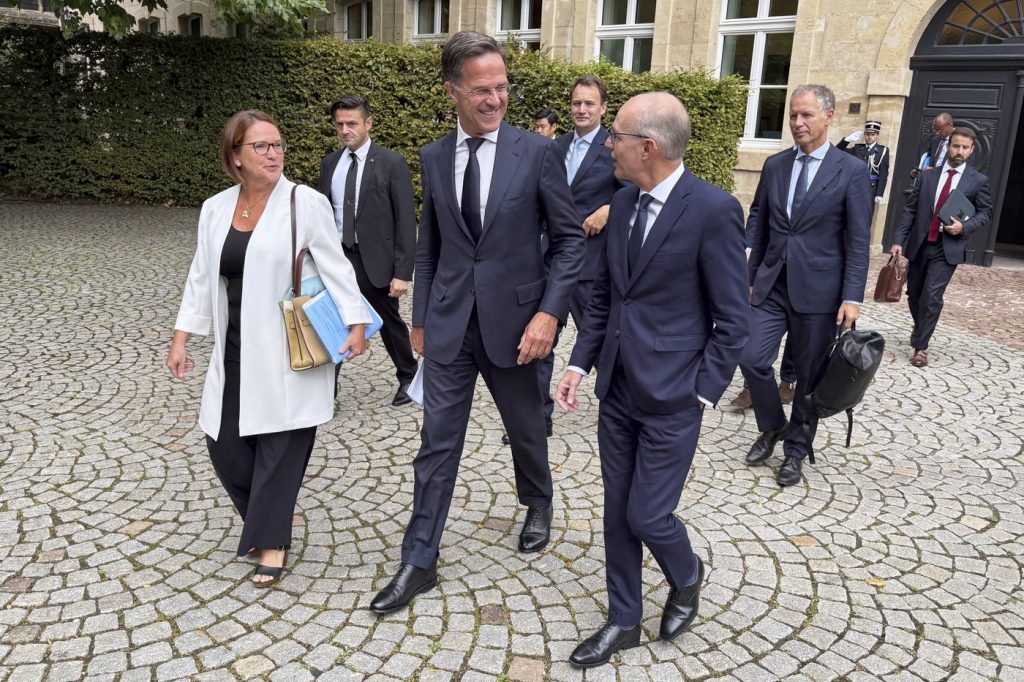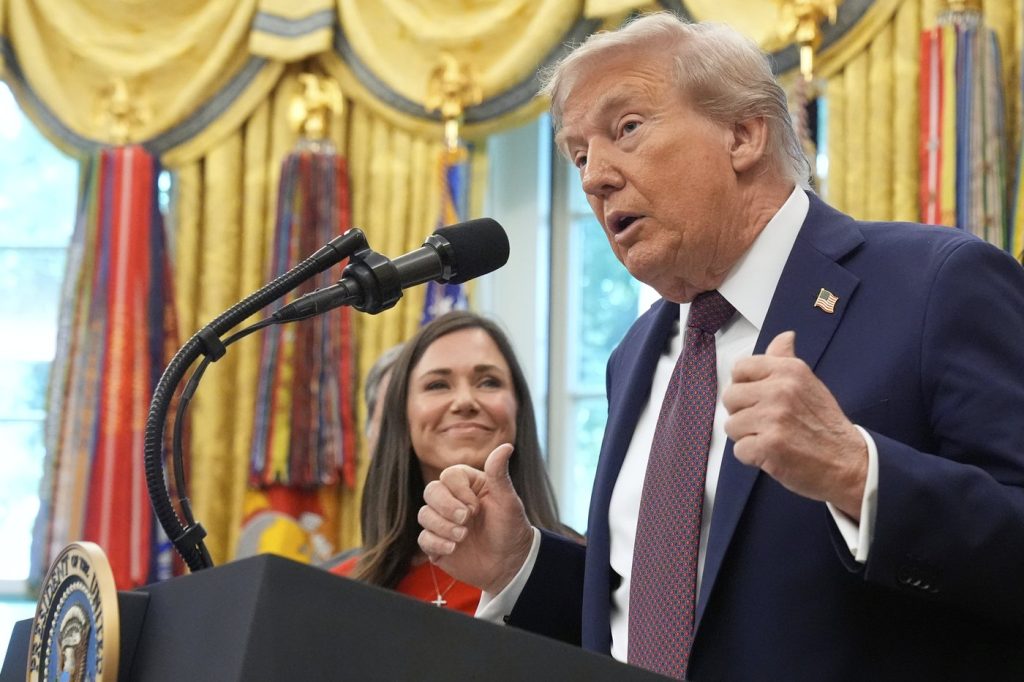A federal judge, U.S. District Judge Charles Breyer, ruled on Tuesday that the Trump administration "willfully" violated federal law by deploying National Guard troops to the Los Angeles area in early June amid protests over immigration raids. The ruling is detailed in a 52-page document that addresses concerns regarding the administration's intentions to use National Guard troops across other cities, including Oakland and San Francisco, creating fears of establishing a national police force under presidential control.
Although Judge Breyer did not order the immediate removal of the remaining 300 soldiers, he highlighted their inadequate training and mandated that they stop executing laws. The ruling, applicable only in California, is set to take effect on September 12.
The White House expressed plans to appeal the ruling, with spokeswoman Anna Kelly asserting that the judge is overstepping in an attempt to undermine the authority of the Commander-in-Chief in addressing violence in American cities.
Concerns arise regarding the potential precedent this ruling could set for Trump’s plans to deploy National Guard units in other Democratic-led cities, like Chicago, Baltimore, and New York. This deployment represents an unprecedented law enforcement effort targeting crime, immigration, and homelessness, especially in Washington D.C., where the president has direct legal control over the National Guard.
In his ruling, Judge Breyer stated that the administration misused the National Guard for functions explicitly prohibited by their training materials. He noted the administration's failure to "meaningfully coordinate with state and local officials" and accused them of providing misleading guidance to federal law enforcement agencies regarding the request for National Guard assistance.
Moreover, Breyer indicated that the government was aware that they were deploying troops to execute domestic laws beyond their legal authority, utilizing armed soldiers and military vehicles for crowd control and establishing military presence in and around Los Angeles.
Breyer's ruling also prohibits the National Guard from engaging in activities such as making arrests, conducting searches, acting as informants, and collecting evidence, after California initiated a lawsuit claiming the troop deployment was in violation of the Posse Comitatus Act, which bars military enforcement of domestic laws. Lawyers representing the Trump administration argued that the act didn’t apply since the troops were said to be protecting federal officers rather than enforcing laws.
The deployment was unprecedented in that it was one of the first instances in decades where a state's National Guard was activated without a governor's request. This action escalates tensions as it directly challenges the state's authority to safeguard its citizens against the administration's mass deportation efforts. Thousands of demonstrators took to the streets, blocking major freeways and engaging in protest activities, while law enforcement utilized tear gas and other crowd-control methods.
California Governor Gavin Newsom remarked that the court ruling emphasizes the principle that "no president is a king" and stressed the importance of state powers in protecting the populace.
President Trump has suggested further deployments of National Guard troops, particularly in Chicago, where he stated, "We’re going in," but did not provide a timeline. This intention has faced pushback from Illinois Governor JB Pritzker and Chicago Mayor Brandon Johnson, who argue that crime rates have dropped in the city and are prepared to file a lawsuit should Trump proceed with his plans.
Retired Army Lt. Col. Daniel Maurer, currently an associate professor at Ohio Northern University College of Law, characterized the Trump administration's use of military presence in domestic affairs as the most aggressive in decades, citing the ruling could serve as a guide for other states facing similar confrontations with federal authority. Around 4,000 National Guard soldiers, along with 700 Marines, were deployed to Los Angeles, although most have since been withdrawn, leaving 300 soldiers in place briefly.
During a trial regarding the deployment, Army Maj. Gen. Scott Sherman testified that he raised concerns over potential violations of the Posse Comitatus Act, revealing that soldiers received training materials outlining prohibited activities. He claimed he was told by superiors that there existed a "constitutional exception" for such conduct when serving to protect federal assets or personnel.












